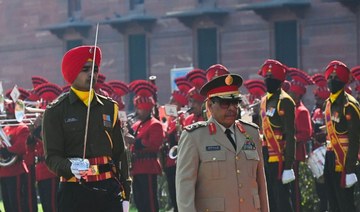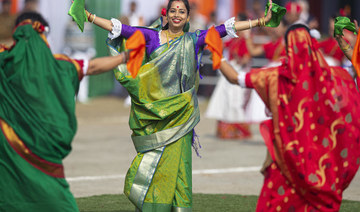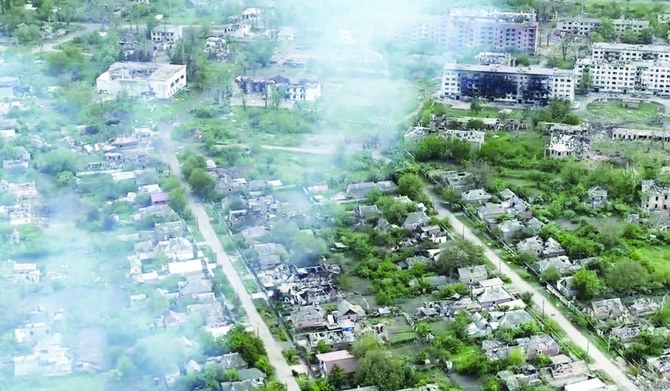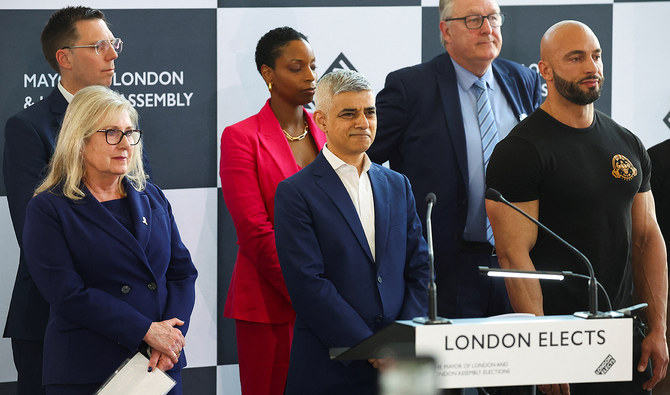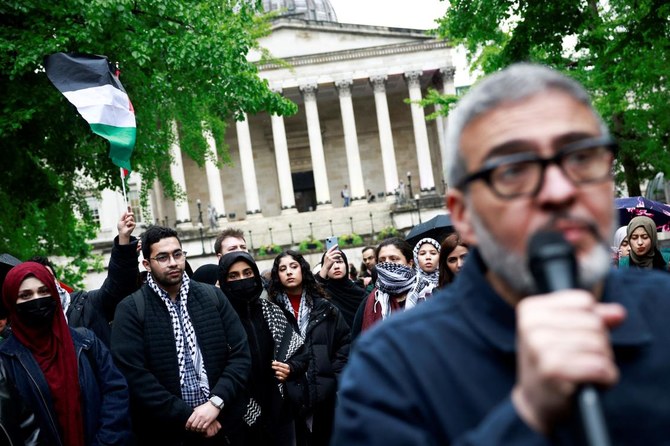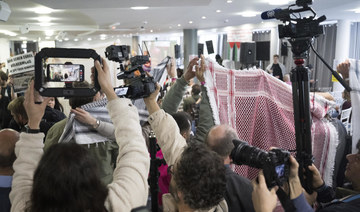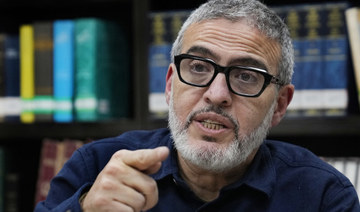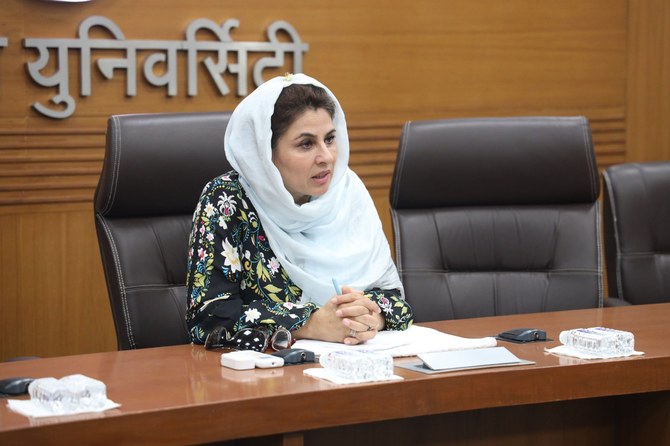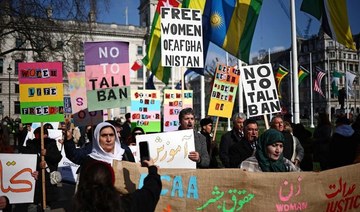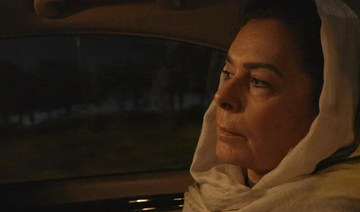
Dr. Suhel Ajaz Khan
On the joyous occasion of the 74th Republic Day of India, I would like to extend my warm greetings and felicitations to all Indian nationals, persons of Indian origin and friends of India in Saudi Arabia.
This Republic Day comes amid the ongoing celebrations for Azadi Ka Amrit Mahotsav, commemorating 75 years of India’s independence and its achievements, and also Amrit Kaal, in the lead up to India@100.
As a comparatively young nation, India has emerged as one of the leading countries on the global stage in terms of educational, scientific, technological and economic progress, making it one of the fastest-growing economies in the world.
The country has been guided in this journey by its core democratic principles of justice, liberty, equality and fraternity, as it has evolved into a truly pluralistic society that embraces diversity and is committed to providing equal opportunities for all its citizens.
At the same time, the age-old philosophy of Indian civilization, including “Vasudhaiva Kutumbakam,” the idea that “the world is one family,” has continued to guide us and shape our approach to the world.
India is a proponent of reformed multilateralism and advocates for a democratic, rules-based and fair international order that emphasizes respect for sovereignty, territorial integrity and equality of all nations, irrespective of size, population and military might.
India, as the largest democracy in the world, as one of the top economies in the world and as a voice of the Global South, has rightful aspirations to become a permanent member of the UN Security Council.
As the world gradually recovers from the economic devastation caused by the COVID-19 pandemic, it is looking keenly at the growth story of a technology-enabled India, which has displayed an appetite for innovation and the adoption of technology, digitalization and automation. India is poised to become the world’s reliable partner in global supply chains.
It is estimated that India’s gross domestic product growth will be 7 percent this fiscal year, outpacing other major developing economies. India is now a $3.1 trillion economy, making it the fifth-largest in the world, and is well on course to becoming a $5 trillion economy.
India and Saudi Arabia have been friends for centuries and the bilateral relationship is based on mutual respect, trust and warmth. Since independence, India’s relations with the Kingdom have progressively evolved into a multifaceted and mutually beneficial strategic partnership encompassing several key areas of engagement, which include cultural exchanges, defense and security cooperation, trade and investments, healthcare, technology, energy security and food security. The large Indian diaspora has also contributed positively to the development journey of Saudi Arabia.
In recent years, bilateral commercial relations between India and the Kingdom have charted an unprecedented trajectory of growth, with an increasing number of business engagements in diverse fields.
Official statistics show that India is the second-largest trade partner for Saudi Arabia, and Saudi Arabia is India’s fourth-largest trade partner. In the current financial year, our trade figures, from April to November 2022, have already surpassed $36 billion, with year-on-year growth of more than 30 percent. Indian exports to Saudi Arabia were worth nearly $7 billion and imports from the Kingdom were valued at more than $29 billion.
Major Indian exports to Saudi Arabia include engineering goods, petroleum products, chemicals, cereals and food items, among other things. Saudi exports to India include mineral fuels, fertilizers, chemicals, plastics and more. Saudi Arabia remains our strongest partner for energy security.
Thanks to the flourishing opportunities that have emerged as part of Saudi Vision 2030 and Indian initiatives such as “Atmanirbhar Bharat” and “Make in India,” the bilateral exchange of investment has also expanded to include a variety of sectors in both economies.
Guided by the leadership’s vision, the Indian Embassy in Riyadh is working toward developing a comprehensive bilateral economic partnership comprising diverse and voluminous trade and investment ties. In this endeavor, the Council for Saudi Chambers of Commerce and Industry and the Saudi-India Business Council have been constant partners for us.
During the visit by Crown Prince Mohammed bin Salman to India in 2019, the SIBC signed a memorandum of understanding with the Federation of Indian Chambers of Commerce and Industry to expand bilateral trade relations.
In addition to the FICCI, other Indian trade promotion organizations, including the Confederation of Indian Industry, the Trade Promotion Council of India, and the National Association of Software and Service Companies, among others, are also keen to work with Saudi organizations to leverage the complementary strengths of both nations and further cement our economic ties.
We look forward to continuing to work closely with our Saudi partners to actualize the opportunities identified under the framework of the Strategic Partnership Council.
Bilateral engagements are expected to increase this year, as India has assumed the chairmanship of the G20. The theme of India’s G20 presidency is “Vasudhaiva Kutumbakam” — One Earth, One Family, One Future — and the country will host more than 200 meetings in more than 50 cities across 32 workstreams.
The Indian presidency of the G20 provides an opportunity for India and Saudi Arabia to cooperate closely in this important, multilateral domain in service of mutual interests.
India is also the chair of the Shanghai Cooperation Organization’s Council of Heads of State, of which the Kingdom is a dialogue partner. This forum provides another platform for working together to achieve our shared objectives for the region.
India and Saudi Arabia are prominent G20 economies and enjoy a host of economic partnership avenues within the framework of the organization. As part of its ongoing G20 presidency, India is keen to explore potential opportunities for economic engagement with all of its G20 partners, including Saudi Arabia, in priority sectors such as health, infrastructure, education, startups, and attainment of the UN’s Sustainable Development Goals.
Last year, multiple high-level visits on both sides enhanced the momentum of our burgeoning bilateral engagements. In August, Mansukh Mandivya, the Indian minister of health and family welfare and minister of chemicals and fertilizers, visited Saudi Arabia and had discussions with the Saudi leadership and private stakeholders about broadening our engagement in both the health and fertilizer sectors.
In September, S. Jaishankar, India’s external affairs minister, and Piyush Goyal, the commerce and industry minister, visited Riyadh and participated, respectively, in the ministerial meetings of the political and economic committees of the Saudi-Indian Strategic Partnership Council.
Prince Abdulaziz bin Salman, the Saudi minister of energy, and Nayef Falah Mubarak Al-Hajraf, the secretary-general of the Gulf Cooperation Council, visited India in October and November last year.
In addition to a traditionally strong energy partnership, as part of which Saudi Arabia is one of the largest suppliers of crude oil and liquefied natural gas to India, both countries are keen to expand bilateral ties to include new and novel areas of cooperation such as power grid interconnection, financial technology projects, green hydrogen, sustainable building materials, startup collaborations and Export-Import Bank of India projects.
Both sides are committed to removing barriers to trade and addressing regulatory issues to further increase bilateral trade and investment. India is also in discussions with GCC authorities for the resumption of Free Trade Agreement negotiations, which will enable us to gain from unrealized potential in terms of economic opportunities in Saudi Arabia, in particular, and the wider region, in general.
In the domain of bilateral defense ties, a number of things are happening. In 2022, a record number of ships visited Saudi Red Sea ports, and there was maritime cooperation in the form of naval exercises and seminars.
We are committed to expanding bilateral defense ties in the fields of emerging technologies, cybersecurity, electronic warfare, unmanned aerial systems, and space. Convergence in defense industry initiatives is also underway, in sync with the Vision 2030 and Self Reliant India policies of the two countries.
In the field of education, India and Saudi Arabia have several avenues of engagement, particularly within the context of the Kingdom’s Vision 2030 and India’s New Education Policy 2020. Several Saudi universities are keen to forge meaningful collaborations with reputed institutions of higher learning in India, including the Indian Institutes of Technology, Indian Institutes of Management, the Indian Institute of Science, and leading universities.
Saudi Arabia hosts about 2.3 million Indians whose contribution to the socioeconomic development and cultural enrichment of the Kingdom is widely acknowledged and appreciated. Over the years, the profile of the Indian diaspora in the Kingdom has diversified significantly to include entrepreneurs, investors, bankers and CEOs of companies, in addition to doctors, engineers and academics.
The Indian diaspora in Saudi Arabia has emerged as a major source of foreign remittances in India. The diaspora also acts as a bridge between the two countries and plays an important role in strengthening bilateral relations.
As we commemorate 75 years of diplomatic ties between India and Saudi Arabia, I would like to avail myself of this opportunity to express my sincere gratitude to King Salman and Crown Prince Mohammed bin Salman for guiding the bilateral relationship in a new direction and enabling the two countries to realize the full potential that exists between them. Indian leadership is also fully committed to making our relationship stronger and more diversified.
I am honored and fortunate to have been given the important assignment as ambassador of India to Saudi Arabia at this exciting time in our relations. I am already touched by the warmth and affection shown to me by various senior Saudi officials immediately upon my arrival here.
I look forward to receiving support from all our Saudi friends, in both the government and private sectors, and also to partnering with the Indian community in the Kingdom to take our relationship to new and greater heights.
Long live the India-Saudi relationship.
Dr. Suhel Ajaz Khan
India’s ambassador to Saudi Arabia.




